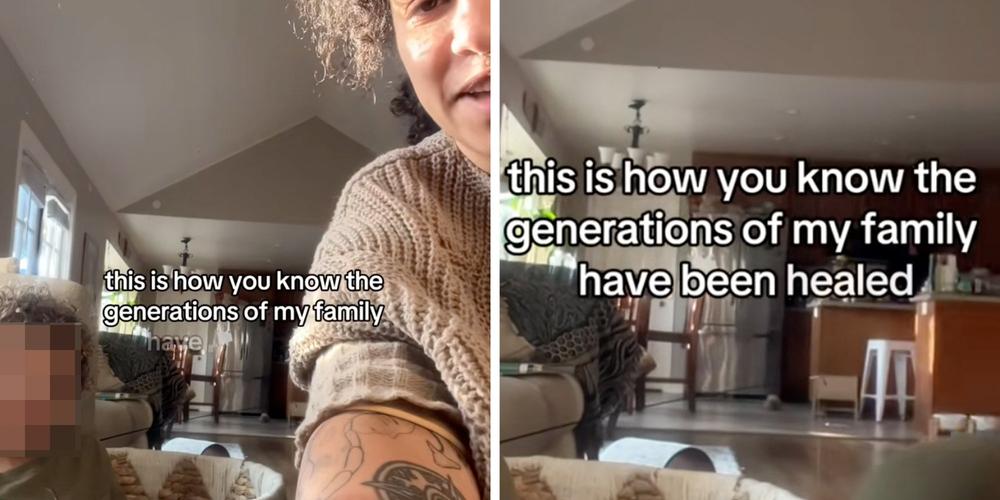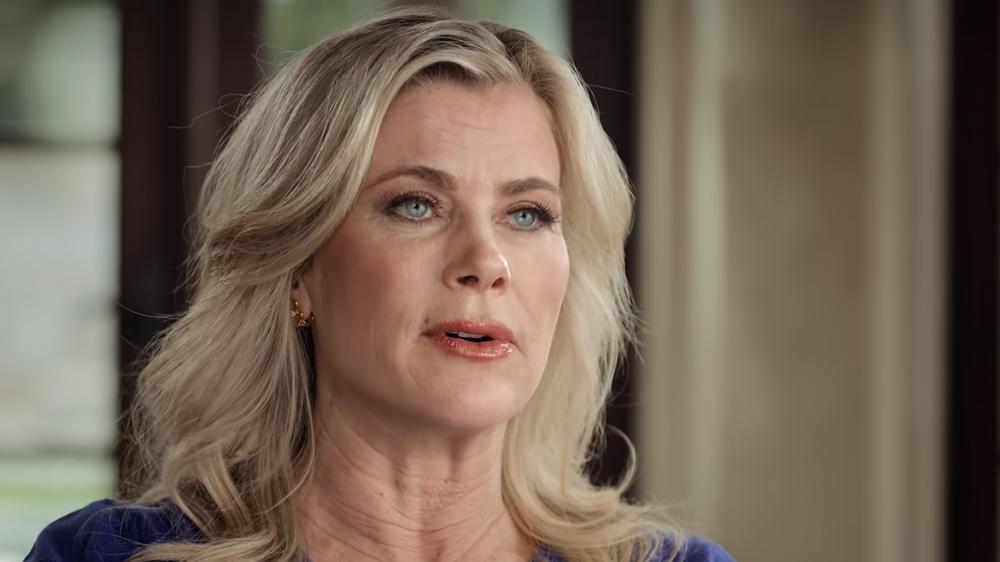A recent TikTok from creator Mama de la Myco (@mamadelamyco) has gone viral for a reason that’s as tender as it is powerful. In the short clip, she said, “This is how you know the generations of my family have been healed.”
Featured VideoShe then raised her hand in a playful, mock-slap motion toward her toddler. Her hands stayed far from his small body. Instead of recoiling, the boy let out a delighted, full-body giggle.
For @mamadelamyco, that simple reaction carried deep meaning. The video’s text overlay read, “This boy does not fear my hands, thank god.” The underlying alleged context of the difference between her own childhood experiences and her son’s response was easy to infer.
AdvertisementWhat is generational trauma?
Generational trauma, also called intergenerational trauma, refers to the transmission of traumatic experiences or their effects from one generation to the next. Dr. Donna Ferguson, who works within the military in a division that oversees criminal investigation, describes it as “a phenomenon that happens inside of families and describes traumatic experiences by parents that is adversely transmitted or passed down to their subsequent generations.”
Often, children grow up watching maladaptive coping strategies like substance abuse, emotional withdrawal, or violence. As a result, those behaviors can shape how they handle stress in adulthood. Studies show that this cycle can continue for decades unless it’s broken.
Domestic abuse isn’t limited to physical harm. It can include emotional, sexual, psychological, or financial control. Abusers may also use tactics like isolation or stalking. Importantly, abuse is rarely a single incident. Instead, it’s usually a pattern that is preventable but requires recognition and intervention.
AdvertisementWhen a parent’s trauma goes unaddressed, children can inherit not just the story but the emotional scars. Those can manifest in fear-based reactions, hypervigilance, or mistrust. Breaking that chain takes consistent safety, love, and care.
Reactions to the TikTok video
The TikTok has now been viewed more than 12.3 million times and received over 2.3 million likes. It was also reposted to Instagram, where @kadyroxz.official commented, “This TikTok by @mamadelamyco had me crying and throwing up. Gonna watch it 10x a day to see if it can rewire some cerebral pathways. 😭😭😭😭”
Many commenters said the clip made them flinch involuntarily. Others admitted they tried the same playful gesture with their own kids and were heartened by the trust they saw.
AdvertisementA TikToker tested this out and said, “lol I just did this to my daughter she squeeled and laughed then screamed tickle me. 😂 I still flinch when people want a high five.”
The responses revealed just how common it is for adults to carry physical memories of fear from childhood.
“I saw another mom do this with words and expressions. The little girl had to finish the sentences like ‘I’ll give you something to cry about’ and she answered with ‘I’ll give you something to eat’🥺” said one commenter.
@mamadelamycoAdvertisementthis boy does not fear my hands. thank god.
♬ original sound – mamadelamyco
@mamadelamyco did not respond immediately to the Daily Dot’s request for comment via email.
If you are a survivor of domestic abuse or want more information on domestic violence and resources for victims, contact the National Domestic Violence Hotline online or at 1-800-799-SAFE (7233).

 YouTube Music introduce il taglio dei silenzi nei podcast
YouTube Music introduce il taglio dei silenzi nei podcast